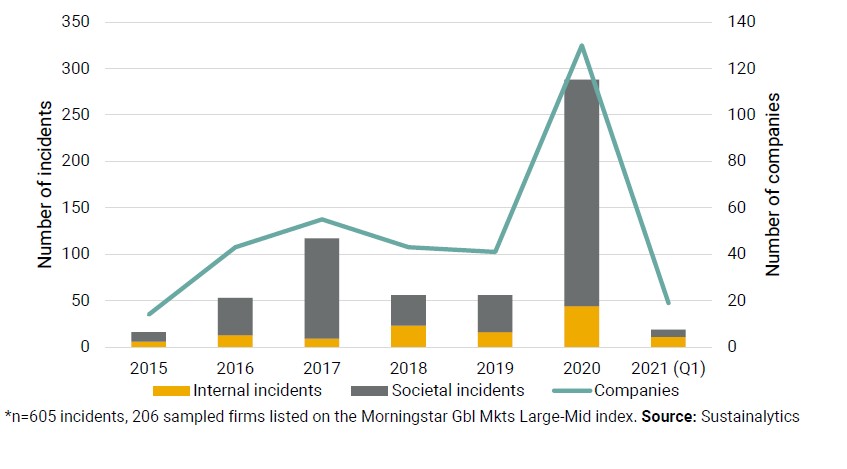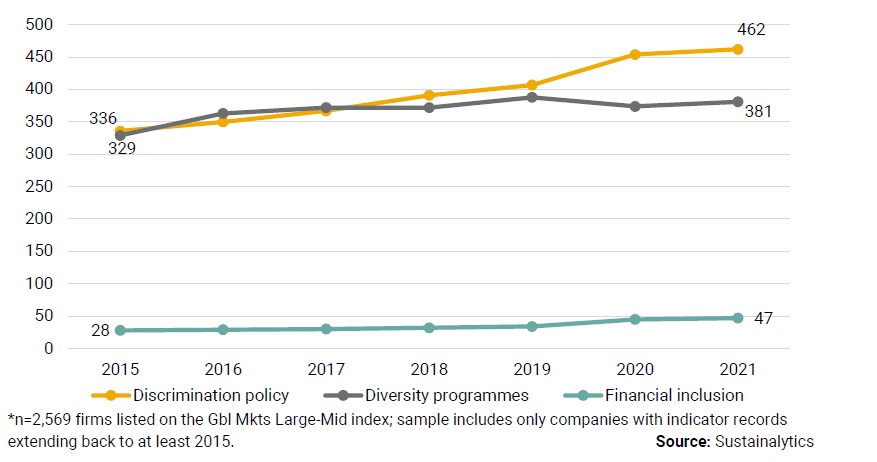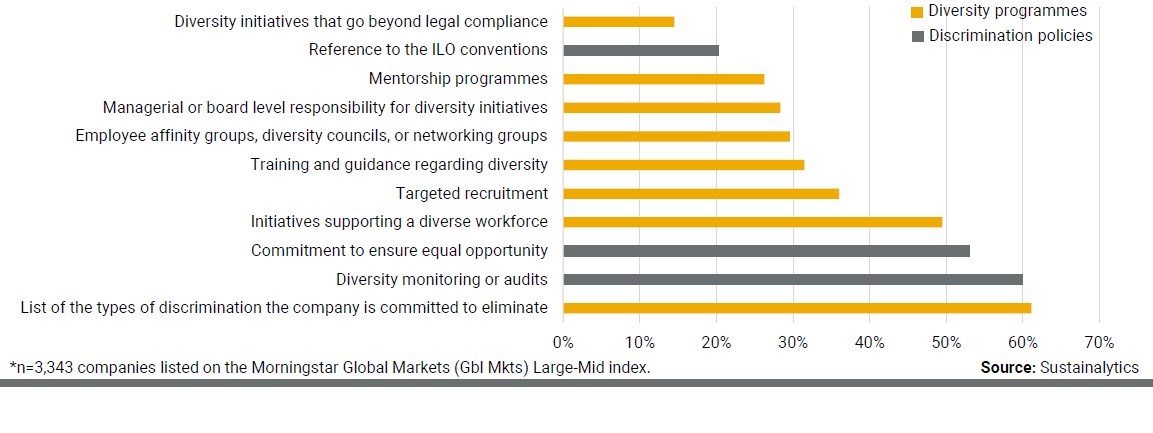
The "S" factor of ESG is becoming increasingly critical for investors. Until recently, the focus was mainly on gender issues, but ethnic and racial issues have also jumped to the fore since last year due to the pandemic that has amplified inequalities among the population.
In its interim report the Platform for Sustainable Finance, an advisory body to the European Commission, two dimensions are hypothesised. The first focuses on the policies, processes and practices within companies that determine their social impact with reference, for example, to labour standards and the most vulnerable groups. The second refers to products and services, i.e. initiatives to contribute positively to the “S” factor.
The obstacles are not insubstantial, given the complexity of the social sphere and the difficulty in measuring results. But the road seems at least somewhat laid out as the disputes companies face are on the rise and investors try to protect their portfolios from such risks.
The Surge in Disputes
A recent study by Sustainalytics, a Morningstar company, sampled over 3,300 companies listed on global stock exchanges and belonging to the Morningstar Global Markets Large-Mid Cap Index. It found that in 2020 there were 288 incidents across 130 companies involving ethnic or racial issues. In particular, there were two types of disputes: internal ones referring to the treatment of employees, and external ones deriving from the impact of the products and services. Compared to 2019, the number of internal incidents increased by 175%, and external by 510%.
Between 2015 and the first quarter of 2021, more than 200 companies were involved in such incidents, with a total of 605 cases globally, of which almost half occurred last year. “Most of it relates to relationships with target communities, such as discriminatory marketing practices or operational activities with a negative impact on less represented ethnic groups,” explains Martin Vezér, one of the report authors. "Some 122 out of 605 cases were internal, mainly related to accusations of discrimination in hiring procedures".
Incidents Related to Ethnic and Racial Issues

The Financial and Consumer Sectors
The financial sector is in the dock. In 2020, 63% of the disputes involved banks or other credit institutions, accused by non-governmental organisations of having supported companies accused of harming indigenous communities with their activities (exploitation of the workforce, damage to water resources and their territories, etc.).
The increase in the number of corporate accidents is largely attributable to the consumer discretionary sector. Notably, four out of 10 involved Amazon (AMZN). "Employees in the US and the UK, for example, reported experiencing racial discrimination and harassment from other colleagues, being denied promotion opportunities for white employees, or being invited to participate in practices of discriminatory hiring," reads the Sustainalytics report.
Geographically, most of the total cases monitored (61%) involved the Latin American and Caribbean region. Europe represents a very small portion (2%), and the United States 21%.
Companies are, however, taking steps to reduce the likelihood of racial or ethnic disputes, but the data appears to show more of a reaction to incidents than a prevention strategy. The adoption of anti-discrimination policies, for example, grew in 2020 after several incidents in this area occurred. Furthermore, there are still few companies with structured programmes for diversity and equity. Finally, in the banking sector there is more to be done on inclusive finance to allow people with less financial resources to access services such as credit, mortgages or loans to start small business projects.
How Corporate Inclusion Initiatives are Increasing

"The study shows that companies need to do more to manage racial and ethnic issues, not only in communicating their programmes, but also in ensuring that these initiatives are effectively implemented in order to reduce risks and disputes," concludes Vezér.
Even today, only 15% of the sample goes beyond the regulatory disclosure obligations or refers to the conventions of the International Labor Organization (ILO). A higher percentage do monitoring and auditing or have a list of types of discrimination they intend to eliminate (around 60%). For asset managers it is a fertile ground to undertake active shareholding initiatives.
Companies Reporting Anti-Discrimination and Diversity Initiatives





























